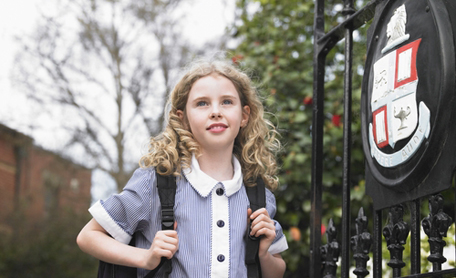window._wpemojiSettings = {"baseUrl":"https:\/\/s.w.org\/images\/core\/emoji\/15.0.3\/72x72\/","ext":".png","svgUrl":"https:\/\/s.w.org\/images\/core\/emoji\/15.0.3\/svg\/","svgExt":".svg","source":{"concatemoji":"https:\/\/www.educatingmatters.co.uk\/wp-includes\/js\/wp-emoji-release.min.js"}};
/*! This file is auto-generated */
!function(i,n){var o,s,e;function c(e){try{var t={supportTests:e,timestamp:(new Date).valueOf()};sessionStorage.setItem(o,JSON.stringify(t))}catch(e){}}function p(e,t,n){e.clearRect(0,0,e.canvas.width,e.canvas.height),e.fillText(t,0,0);var t=new Uint32Array(e.getImageData(0,0,e.canvas.width,e.canvas.height).data),r=(e.clearRect(0,0,e.canvas.width,e.canvas.height),e.fillText(n,0,0),new Uint32Array(e.getImageData(0,0,e.canvas.width,e.canvas.height).data));return t.every(function(e,t){return e===r[t]})}function u(e,t,n){switch(t){case"flag":return n(e,"\ud83c\udff3\ufe0f\u200d\u26a7\ufe0f","\ud83c\udff3\ufe0f\u200b\u26a7\ufe0f")?!1:!n(e,"\ud83c\uddfa\ud83c\uddf3","\ud83c\uddfa\u200b\ud83c\uddf3")&&!n(e,"\ud83c\udff4\udb40\udc67\udb40\udc62\udb40\udc65\udb40\udc6e\udb40\udc67\udb40\udc7f","\ud83c\udff4\u200b\udb40\udc67\u200b\udb40\udc62\u200b\udb40\udc65\u200b\udb40\udc6e\u200b\udb40\udc67\u200b\udb40\udc7f");case"emoji":return!n(e,"\ud83d\udc26\u200d\u2b1b","\ud83d\udc26\u200b\u2b1b")}return!1}function f(e,t,n){var r="undefined"!=typeof WorkerGlobalScope&&self instanceof WorkerGlobalScope?new OffscreenCanvas(300,150):i.createElement("canvas"),a=r.getContext("2d",{willReadFrequently:!0}),o=(a.textBaseline="top",a.font="600 32px Arial",{});return e.forEach(function(e){o[e]=t(a,e,n)}),o}function t(e){var t=i.createElement("script");t.src=e,t.defer=!0,i.head.appendChild(t)}"undefined"!=typeof Promise&&(o="wpEmojiSettingsSupports",s=["flag","emoji"],n.supports={everything:!0,everythingExceptFlag:!0},e=new Promise(function(e){i.addEventListener("DOMContentLoaded",e,{once:!0})}),new Promise(function(t){var n=function(){try{var e=JSON.parse(sessionStorage.getItem(o));if("object"==typeof e&&"number"==typeof e.timestamp&&(new Date).valueOf()<e.timestamp+604800&&"object"==typeof e.supportTests)return e.supportTests}catch(e){}return null}();if(!n){if("undefined"!=typeof Worker&&"undefined"!=typeof OffscreenCanvas&&"undefined"!=typeof URL&&URL.createObjectURL&&"undefined"!=typeof Blob)try{var e="postMessage("+f.toString()+"("+[JSON.stringify(s),u.toString(),p.toString()].join(",")+"));",r=new Blob([e],{type:"text/javascript"}),a=new Worker(URL.createObjectURL(r),{name:"wpTestEmojiSupports"});return void(a.onmessage=function(e){c(n=e.data),a.terminate(),t(n)})}catch(e){}c(n=f(s,u,p))}t(n)}).then(function(e){for(var t in e)n.supports[t]=e[t],n.supports.everything=n.supports.everything&&n.supports[t],"flag"!==t&&(n.supports.everythingExceptFlag=n.supports.everythingExceptFlag&&n.supports[t]);n.supports.everythingExceptFlag=n.supports.everythingExceptFlag&&!n.supports.flag,n.DOMReady=!1,n.readyCallback=function(){n.DOMReady=!0}}).then(function(){return e}).then(function(){var e;n.supports.everything||(n.readyCallback(),(e=n.source||{}).concatemoji?t(e.concatemoji):e.wpemoji&&e.twemoji&&(t(e.twemoji),t(e.wpemoji)))}))}((window,document),window._wpemojiSettings);
var breeze_prefetch = {"local_url":"https:\/\/www.educatingmatters.co.uk","ignore_remote_prefetch":"1","ignore_list":["\/wp-admin\/"]};
https://www.educatingmatters.co.uk/wp-content/plugins/breeze/assets/js/js-front-end/breeze-prefetch-links.min.js
https://www.educatingmatters.co.uk/wp-content/plugins/document-emberdder/dist/public.js
https://www.educatingmatters.co.uk/wp-includes/js/jquery/jquery.min.js
https://www.educatingmatters.co.uk/wp-includes/js/jquery/jquery-migrate.min.js
var whp_local_data = {"add_url":"https:\/\/www.educatingmatters.co.uk\/wp-admin\/post-new.php?post_type=event","ajaxurl":"https:\/\/www.educatingmatters.co.uk\/wp-admin\/admin-ajax.php"};
https://www.educatingmatters.co.uk/wp-content/plugins/wp-security-hardening/modules/js/front.js
var _hsq = _hsq || [];
_hsq.push(["setContentType", "blog-post"]);
var root = document.getElementsByTagName( "html" )[0]; root.setAttribute( "class", "js" );
Skip to main content (function(window, document) {if(navigator.userAgent.match(/(Android|iPod|iPhone|iPad|BlackBerry|IEMobile|Opera Mini)/)) {
document.body.className += " using-mobile-browser mobile ";
}
if(navigator.userAgent.match(/Mac/) && navigator.maxTouchPoints && navigator.maxTouchPoints > 2) {
document.body.className += " using-ios-device ";
}if( !("ontouchstart" in window) ) {var body = document.querySelector("body");
var winW = window.innerWidth;
var bodyW = body.clientWidth;if (winW > bodyW + 4) {
body.setAttribute("style", "--scroll-bar-w: " + (winW - bodyW - 4) + "px");
} else {
body.setAttribute("style", "--scroll-bar-w: 0px");
}
}})(window, document);
https://www.educatingmatters.co.uk/wp-content/plugins/contact-form-7/includes/swv/js/index.js
var wpcf7 = {"api":{"root":"https:\/\/www.educatingmatters.co.uk\/wp-json\/","namespace":"contact-form-7\/v1"},"cached":"1"};
https://www.educatingmatters.co.uk/wp-content/plugins/contact-form-7/includes/js/index.js
https://www.educatingmatters.co.uk/wp-content/themes/salient/js/build/third-party/jquery.easing.min.js
https://www.educatingmatters.co.uk/wp-content/themes/salient/js/build/third-party/jquery.mousewheel.min.js
https://www.educatingmatters.co.uk/wp-content/themes/salient/js/build/priority.js
https://www.educatingmatters.co.uk/wp-content/themes/salient/js/build/third-party/transit.min.js
https://www.educatingmatters.co.uk/wp-content/themes/salient/js/build/third-party/waypoints.js
https://www.educatingmatters.co.uk/wp-content/themes/salient/js/build/third-party/imagesLoaded.min.js
https://www.educatingmatters.co.uk/wp-content/themes/salient/js/build/third-party/hoverintent.min.js
https://www.educatingmatters.co.uk/wp-content/themes/salient/js/build/third-party/jquery.fancybox.js
https://www.educatingmatters.co.uk/wp-content/themes/salient/js/build/third-party/anime.min.js
https://www.educatingmatters.co.uk/wp-content/themes/salient/js/build/third-party/superfish.js
var nectarLove = {"ajaxurl":"https:\/\/www.educatingmatters.co.uk\/wp-admin\/admin-ajax.php","postID":"974","rooturl":"https:\/\/www.educatingmatters.co.uk","disqusComments":"false","loveNonce":"8a438df4ae","mapApiKey":""};
var nectarOptions = {"delay_js":"false","quick_search":"false","react_compat":"disabled","header_entrance":"false","simplify_ocm_mobile":"0","mobile_header_format":"default","ocm_btn_position":"default","left_header_dropdown_func":"default","ajax_add_to_cart":"0","ocm_remove_ext_menu_items":"remove_images","woo_product_filter_toggle":"0","woo_sidebar_toggles":"true","woo_sticky_sidebar":"0","woo_minimal_product_hover":"default","woo_minimal_product_effect":"default","woo_related_upsell_carousel":"false","woo_product_variable_select":"default","woo_using_cart_addons":"false"};
var nectar_front_i18n = {"menu":"Menu","next":"Next","previous":"Previous","close":"Close"};
https://www.educatingmatters.co.uk/wp-content/themes/salient/js/build/init.js
https://www.educatingmatters.co.uk/wp-content/plugins/salient-core/js/third-party/touchswipe.min.js
var gforms_recaptcha_recaptcha_strings = {"site_key":"6Ldw964pAAAAAIxRtPsJU96NWVmu62rgDGmjiA4x","ajaxurl":"https:\/\/www.educatingmatters.co.uk\/wp-admin\/admin-ajax.php","nonce":"f4f9aa16fc"};

